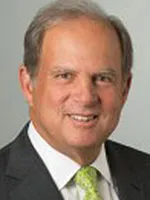Exxon to Close Pioneer Deal

[Stay on top of transportation news: Get TTNews in your inbox.]
The U.S. Federal Trade Commission declined to challenge Exxon Mobil Corp.’s $60 billion purchase of Pioneer Natural Resources Co. but asserted that Scott Sheffield, Pioneer’s co-founder, must not take a seat on the supermajor’s board.
The decision, announced May 2 in a filing, will ease concern the Biden administration will seek to block a series of oil and gas megamergers, but it came at a hefty price. The antitrust agency says it found evidence Sheffield sought to communicate with OPEC and fellow U.S. producers about oil pricing and output, potentially driving up costs for consumers.
“Mr. Sheffield’s past conduct makes it crystal clear that he should be nowhere near Exxon’s boardroom. American consumers shouldn’t pay unfair prices at the pump simply to pad a corporate executive’s pocketbook,” Deputy Director of the FTC’s Bureau of Competition Kyle Mach said in a statement.
The proposed consent order also bars Sheffield from serving in any advisory capacity at Exxon and prohibits the oil giant from appointing any Pioneer employee or director to its board for five years.
Selling his company to Exxon and landing a seat on the board were a career capstone for Sheffield, who led Pioneer for more than 20 years and was one of the earliest proponents of fracking in the Permian Basin. After closing the merger, Exxon will be far and away the biggest producer in the Permian Basin of Texas and New Mexico, which now pumps more oil per day than Iraq, the second-largest OPEC-member.
FTC order bans former Pioneer CEO from Exxon Board seat in Exxon-Pioneer deal: https://t.co/U6UeXvbF9n — FTC (@FTC) May 2, 2024
More than 50 lawmakers urged the FTC in March to increase scrutiny over fears a $230 billion wave of consolidation in the past year would increase energy prices for consumers, squeeze suppliers and suppress wages. Investors had feared the agency, which has become more aggressive under Chair Lina Khan, would stand in the way of several large deals, especially in an election year when the Biden administration is seeking to prove its climate credentials and contain gasoline prices.

Sheffield
Chevron Corp., Occidental Petroleum Corp. and Chesapeake Energy Corp. are among companies with large pending takeover deals that are undergoing in-depth reviews before the FTC.
Oil executives claim the deals will benefit shareholders, consumers and the environment. Exxon CEO Darren Woods has said the Pioneer deal would lower its cost of production, making U.S. barrels more competitive in the global market and provide a strong platform for growth, which would ultimately benefit consumers. Exxon also pledged to make Pioneer’s operations net zero by 2035, accelerating the prior target by 15 years.
Sheffield is a rare outspoken leader in the U.S. shale patch, frequently appearing in media interviews and industry conferences. He was an early advocate of the industry’s push for capital discipline rather than ramping up production at all costs, and was one of the first CEOs to call on his company and others to reducing flaring.
Want more news? Listen to today's daily briefing above or go here for more info
But it was Sheffield’s public and private communications with OPEC and other industry executives that caught the attention of the FTC. He was a leading advocate of government-mandated rationing of Texas oil production during the early-2020 crude market collapse that saw prices plunge below zero. His efforts to convince the Texas Railroad Commission that oversees that state’s oil industry to impose output caps for the first time in decades was ultimately unsuccessful.
The Biden administration has frequently been at odds with the industry, but easing through what many executives see as the necessary consolidation of the oil patch is likely to improve relations. With crude prices up more than 10% this year and tensions rising the Middle East, the administration is vulnerable to Republican attacks on measures that hurt the oil industry and raise gas prices.
The Pioneer deal will combine two fast-growing Permian operations, lifting Exxon’s production in the basin to about 2 million barrels of oil equivalent a day by 2027, up from about 600,000 last year.




